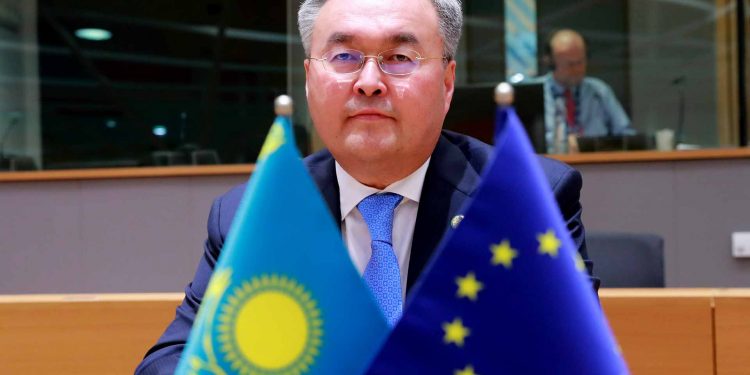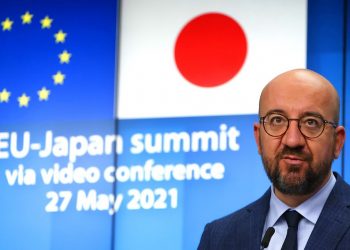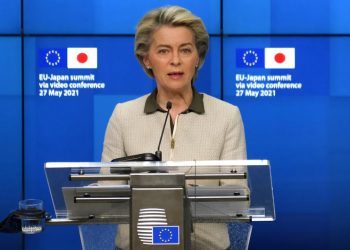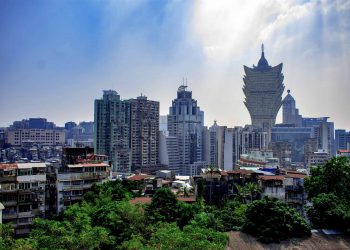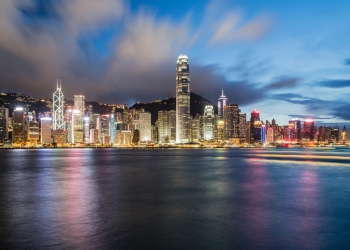The Cooperation Council between the European Union and Kazakhstan held its eighteenth meeting on Monday, 10 May 2021 in Brussels and reviewed the progress made in the implementation of EU-Kazakhstan Enhanced Partnership and Cooperation Agreement. The European Union (EU) and the Republic of Kazakhstan held a very constructive Cooperation Council with Kazakhstan’s Deputy Prime Minister and Foreign Minister, Mukhtar Tileuberdi. The Cooperation Council confirmed the mutual commitment in further strengthening bilateral relations. The EU looked forward to the first official visit of President Tokayev to Brussels when conditions allow.
It’s time to take EU-Kazakhstan relations to a new level.
Günther Oettinger, Former European Commission Vice President
The Cooperation Council reviewed the progress made in the implementation of EU-Kazakhstan Enhanced Partnership and Cooperation Agreement (EPCA), which entered into force on 1 March 2020. Bilateral cooperation between Kazakhstan and the European Union has progressed steadily, even in these challenging times, through continued exchanges in the Cooperation Committee, Subcommittees and dialogues, and current Cooperation Council.
EU-Kazakhstan trade relations
In relation to trade, even in a year as difficult as 2020, the EU has consolidated its position as Kazakhstan’s first trade partner and first foreign investor, and Kazakhstan remains the main trade partner of the EU in Central Asia. Total EU-Kazakhstan trade reached €18.6 billion in 2020, with EU imports worth €12.6 billion and EU exports €5.9 billion. The EU is by far Kazakhstan’s first trading partner overall, representing 41% of total Kazakh exports.
The EU welcomed the progress made in the framework of the high-level platform for dialogue between the Kazakhstan Government and the EU on economic and business matters (“Business Platform”), launched in 2019 and chaired by the Prime Minister Mamin. The platform acknowledges the importance of the EU in Kazakhstan’s external trade, and discussions on a range of issues contribute to attract more investment in Kazakhstan.
Political dialogue
The Cooperation Council also provided an opportunity for reinforced political dialogue and addressed issues of good governance, the promotion and protection of human rights, and engagement with civil society. The EU welcomed Kazakhstan’s ratification of the Second Optional Protocol to the International Covenant on Civil and Political Rights.
The European Parliament Resolution on Human Rights, adopted in February, was discussed, and Kazakhstan’s recently announced third stage of political reform aimed at further democratisation of society. The EU stressed the importance of tangible results, in particular in addressing obstacles to the independence of lawyers, freedom of expression, as well as freedom of assembly and association, including trade unions, independence and pluralism of the media and a thriving civil society. The EU continues to advocate for the criminalisation of domestic violence. The EU appreciates Kazakhstan’s offer to host the third EU-Central Asia Civil Society Forum to take place in Almaty later this year.
EU-Kazakhstan Climate Conference and Green Agenda
The Cooperation Council welcomed Kazakhstan’s Green Agenda. The EU looks forward to the EU-Kazakhstan Climate Conference on 3 June, in Nur-Sultan, and joint work towards the COP26 on climate, especially in light of President Tokayev’s pledge for Kazakhstan to become climate neutral by 2060.
The Cooperation Council discussed recent developments as regards Central Asian regional cooperation. The EU thanked Kazakhstan for its active role in promoting peace, stability and security in the wider region, including with Afghanistan. Regional security was also discussed, including border management, counter-terrorism and the fight against drug trafficking.
The Cooperation Council was chaired by Augusto Santos Silva, Minister of State and Foreign Affairs of Portugal. The delegation of Kazakhstan was led by Mukhtar Tileuberdi, Deputy Prime Minister and Minister of Foreign Affairs of the Republic of Kazakhstan.
In the margins of the Cooperation Council, Deputy Prime Minister and Foreign Minister Tileuberdi had a bilateral meeting with the EU High Representative, Josep Borrell, where they discussed EU-Kazakhstan relations, including human rights, as well as regional and international developments and cooperation. Foreign Minister Tileuberdi also met with European Union Special Representative for Human Rights, Eamon Gilmore.
Kazakhstan–European Union relations
The EU is Kazakhstan’s main economic partner. Over 50% of the country’s foreign trade accounts for the EU. 48% of Kazakhstan’s inward investment originates in the EU countries. Since 2002, the EU has grown to become Kazakhstan’s largest trading partner, being the destination of 40% of its exports. Those exports were primarily, 80%, oil and gas in 2007. In 2007 EU imports of goods from Kazakhstan amounted to €13.35 billion and services amounted to €1.52 billion. EU exports to Kazakhstan were €6.04 billion in goods and €1.92 billion in services. Half of Kazakhstan’s $7.3 billion of foreign direct investment in 2006 came from the EU. As a major energy supplier to the EU, the EU supports its accession to the World Trade Organization.

